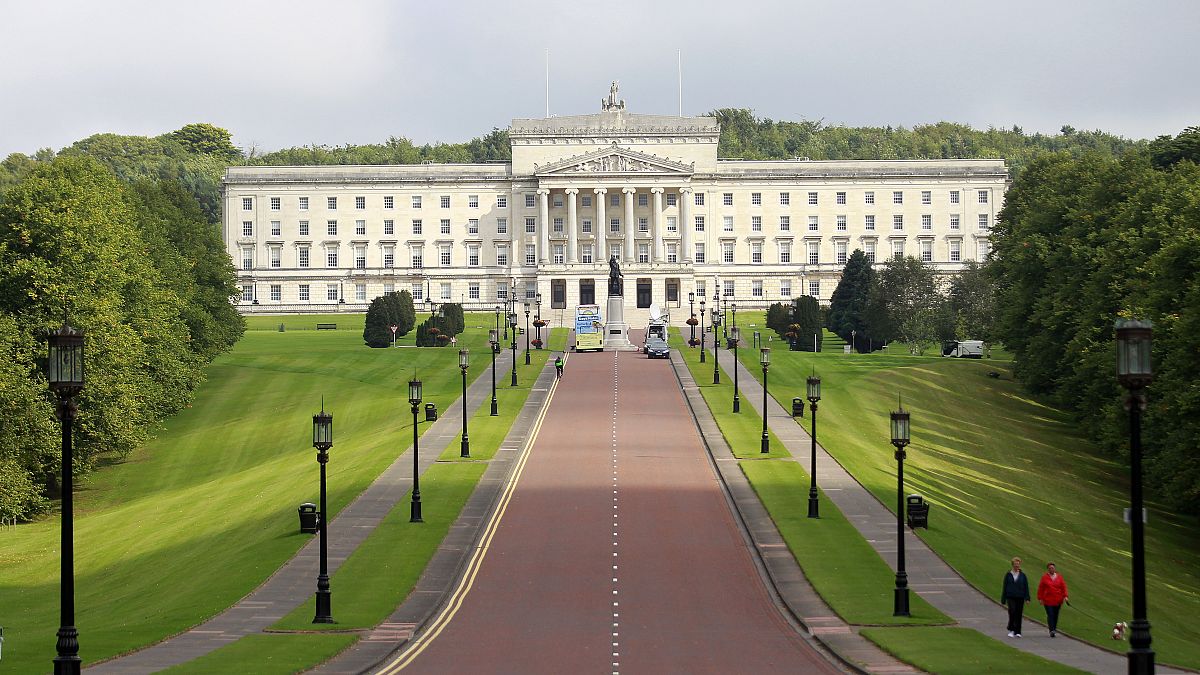It's possible that Sinn Fein, the cross-Ireland republican party, may win Northern Ireland’s assembly elections, due to be held on Thursday.
In the 101 years since Northern Ireland was created, a unionist party has always been the largest force in the province’s previous Parliament and its current assembly.
But now that could change as Sinn Fein, a force in Irish republicanism on both sides of the border, looks poised to become the largest party in the assembly, according to polls ahead of the May 5th election.
The party has been campaigning on economic issues, presenting itself as a progressive force of change.
While they have maintained their raison d’etre in advocating for Northern Ireland, a province of Great Britain, to become a part of the Republic of Ireland in the south, it has taken a backseat in election campaigning.
At a recent election event, Michelle O'Neill, Sinn Fein’s Vice President said the party's "priority is to make politics work and to show that real change is possible."
"I think the last number of months have proven that when MLAs (Member of Legislative Assembly) cooperate together across party lines in the assembly that real delivery is very possible, delivery of progressive change that can make a real difference to people's lives."
Their main rivals, the Democratic Unionist Party (DUP), have other ideas. They have held the position of First Minister in the province since 2007, and are not keen to give it up.
They want to highlight the historic links between Sinn Fein and the terrorist group, the IRA. They say that counter to the increasing focus on domestic issues, the party is still preoccupied with the aim of taking Northern Ireland out of the UK.
"I make no apology for pointing out the glaringly obvious in this election campaign," said Jeffrey Donaldson, the leader of the DUP, at the launch of their election manifesto.
"Whilst we're focusing on the issues that matter to ordinary people and to families right across Northern Ireland, they're focusing on their real agenda, which is to pursue their plans for a border poll."
A third way?
Another political first could be from the Alliance party, which hopes to secure the largest seat allocation ever for a party that is neither Unionist nor Republican.
Over recent years, they’ve seen their support increase as more have stopped primarily describing themselves by the duality that is Northern Ireland’s political culture.
David McCann, a political commentator for the political website Slugger O’Toole, says that Alliance “currently have 11 of the 90 MLAs in Stormont at the minute if polls are right, and if projections are right, that is set to grow to about 16 to 19 MLAs and that will be quite significant."
Future problems, no matter what the result
It’s hard to not see the influence of history in Northern Ireland. The large cities and towns in the province are covered with sectarian murals and memorials commemorating those who died in the violent Troubles.
While that period is over, working together remains difficult.
The DUP has said it will not enter a new power-sharing government unless the Northern Ireland protocol governing post-Brexit trade with the rest of the United Kingdom is completely overhauled, which Sinn Fein won’t do.
It means whatever the result on Thursday, forming an enduring government will be very hard.


